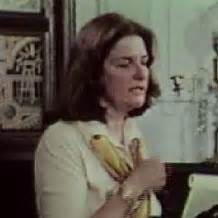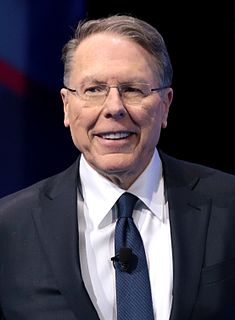A Quote by Donald Trump
One of the things that I'm doing and I'm - we have the Johnson Amendment. You know what that is. That Lyndon Johnson in the 1950s passed an amendment because supposedly he was having a hard time with a church in Houston, with a pastor. And he passed an amendment saying basically if you're a pastor, if you're a religious person, you cannot get up and talk politics.
Related Quotes
In other words, you're taking away your freedom of speech. And they [ministers and priests] started telling me about the Johnson Amendment which really was the first time - and I started studying .And we had a meeting a month later and I said, "We're gonna get rid of the Johnson Amendment because they're stopping you and our great people from talking."
When they took the Fourth Amendment, I was silent because I don't deal drugs. When they took the Sixth Amendment, I kept quiet because I know I'm innocent. When they took the Second Amendment, I said nothing because I don't own a gun. Now they've come for the First Amendment, and I can't say anything at all.
When Kennedy could not get the civil rights bill passed - and he was the big liberal - Lyndon Johnson came in and it got passed, and he was the conservative and the southerner. So sometimes in politics, to get something done, it takes a special kind of knowledge and a special kind of person, but it doesn't always follow the party lines.
The left looks at the Constitution and sees things that aren't there and then they find 'em. They look at things that are there and claim they're not there. Like the Second Amendment, nah, nah, it's not there, they really didn't intend that. No, no. Abortion. You can't find it, yeah, there it is, plain as day, see, it's right there in the 14th Amendment, the Tenth Amendment, the Ninth Amendment, the Fifth - no, it's not.
Desperate times require desperate measures. What Lincoln and the Lobbyist for the Amendment and the Manager of the Amendment and himself, what they did to get this passed was not illegal. It was murky, but what they did was noble and grand. How they went about it was somewhat murky. Nothing they did was really illegal.
There is no question that under the Equal Rights Amendment there will be debates at times, indecision at times, litigation at times. Has anyone proposed that we rescind the First Amendment on free speech because there is too much litigation over it? Has anyone suggested the same for the Fourteenth Amendment I don't suppose there has ever been a constitutional amendment with so much litigation?
At the time of the adoption of the constitution, and of the amendment to it, now under consideration [i.e., the First Amendment], the general, if not the universal sentiment in America was, that Christianity ought to receive encouragement from the state, so far as was not incompatible with the private rights of conscience, and the freedom of religious worship.































